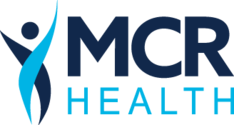At this time, there is no current vaccination in place that can cure patients of COVID-19, also known as the novel coronavirus. Moreover, there is no medication approved to treat it. However, this respiratory disease is thought to be transmitted from person to person.
That means there are definite preventative measures individuals can take to combat the spread of this deadly virus and support public health.
DON’T TOUCH YOUR FACE
Whether it’s handrails, doorknobs, elevator buttons, countertops, or other people, we touch a lot of germy objects and surfaces throughout our daily lives.
This means that our hands are effectively gathering germs from across our hometowns. So it’s vitally important that we do our best not to transfer those germs from our hands to our faces.
This can be incredibly difficult because it feels very counterintuitive. We feel an itch, and we scratch it. But if we can control ourselves, the reward (the prevention of a life-threatening disease) is certainly worth it.
At all costs, avoid nose picking, nail-biting, eye rubbing, and all other forms of face touching.
WASH YOUR HANDS
This is perhaps one of the most important measures we can take. That’s because your hands carry about 5,000 germs on them. Each.
This seemingly simple hygienic task can be life-saving, and in a circumstance of such elevated urgency as the one we find ourselves in today, that point cannot be overemphasized.
So wash those hands with soap and water for about 20 seconds as frequently as possible. If it helps you reach 20 seconds, you can even sing Happy Birthday or the Jeopardy! final clue tune.
AVOID CLOSE CONTACT
Although people should absolutely self-isolate if they fall ill, a lot of the time, they never get around to it.
That’s why if people infected with the respiratory disease do not self-isolate, you need to do the job for them.
Avoid close contact with them whenever possible. This will significantly reduce the high likelihood of them transmitting the disease to you.
Moreover, if the Coronavirus spreads to your community, put a distance between yourself and others. You cannot be too cautious in these sorts of situations.
WORK FROM HOME
If your job allows it working from home can be a fantastic method to prevent anyone at work from transmitting this disease to you in person.
Whether in bathrooms, meetings, or offices, you are much more vulnerable to this respiratory illness at work
So ask your supervisor if you can stay home to telework.
COVER COUGHS AND SNEEZES
This is a big preventative measure that some people don’t realize. When at all possible, use tissues as you cough or sneeze. Then make sure you throw away the tissues.
If you have no tissues around, then sneeze or cough on the inside of your elbow (washing up when you get the chance).
Both of these methods will decrease the likelihood of spreading Coronavirus.
TAKE PRECAUTION FOR THE ELDERLY AND THOSE WITH CHRONIC CONDITIONS
Similar to the flu, the novel Coronavirus is a particularly elevated threat to certain groups: older adults and people of all ages who suffer from chronic conditions, such as diabetes, heart disease, and lung disease.
Follow these additional steps to ensure that the elderly and chronically ill are not affected if someone under your roof gets sick.
- Quarantine the infected individual in a separate room (away from the elderly/chronically ill)
- Keep the door closed at all possible times
- Allow only one person to care for the infected individual
ELIMINATE GERMS
This respiratory disease can easily be spread through germs.
For this reason, you should make a conscious effort to clean and disinfect all frequently touched objects and surfaces.
That means things like door handles, light switches, countertops, remote controls, keyboards, and everything else.
AVOID LARGE GATHERINGS
Coronavirus has motivated many big institutions, concerned with saving lives, to temporarily halt operations. The NBA has suspended its current season; Broadway has shut down; and Harvard has advised its students not to return after Spring Break.
And for very good reason.
Large gatherings like these can be very dangerous at this time because they can inadvertently serve as hubs for the transmission of this deadly respiratory disease.
So at this time, resist the #FOMO, and do not go to large events. Be on the safe side.
AVOID TRAVEL AND CRUISES
To that point, traveling (whether for pleasure or business) is a particularly risky endeavor right now.
This is in part because travelers are in close proximity to other travelers, which, according to the CDC website, puts travelers at an elevated risk for respiratory disease.
What’s more, the US government has also advised that older people and people suffering from chronic medical conditions should forego any nonessential air travel and trips on cruise ships.
TALK WITH YOUR KIDS ABOUT IT
This is an incredibly important preventative measure. As much as you may know about preventing this respiratory disease, if your children are unaware of the present threat it poses, all of your knowledge on the subject will be worthless.
If you have children, they need to understand what the novel Coronavirus is, and they need to understand what they can do to combat its spread.
If kids can become active participants in the prevention of this disease, they will be much less likely to spread it. So talk with your kids about what they can do to help.
REMEMBER
Whether it’s covering your coughs, washing your hands, or avoiding your face, these measures are not complex. It can be difficult, however, to train yourself to take those steps.
But doing exactly that is undoubtedly worth the effort because it’s for the safety of yourself and the safety of your family members.
We need to treat Coronavirus seriously. If you exhibit symptoms, such as a fever, cough, or shortness of breath, please limit exposure to others and call your primary care provider or 866-779-6121.
 Due to damages sustained from Hurricane Milton, the Riverside Medical Center remains closed until further notice. Our Cardiology, Pulmonology, Woundcare and Dermatology departments have been relocated to our other Healthcare Centers. All other MCR Health locations are operating normally.
Due to damages sustained from Hurricane Milton, the Riverside Medical Center remains closed until further notice. Our Cardiology, Pulmonology, Woundcare and Dermatology departments have been relocated to our other Healthcare Centers. All other MCR Health locations are operating normally.
